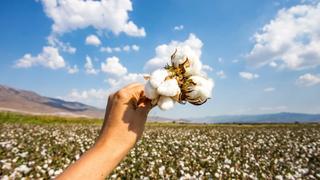The Centre has allowed imports of 40,000 tonnes of natural rubber at a concessional duty of 7.5 per cent for the current fiscal. This is similar to the one allowed last fiscal.
Since April 1 this year, the Customs duty on natural rubber has been fixed at 20 per cent or Rs 20 a kg, whichever is lower.
The move to allow imports at a lower duty follows demand from the user industry, particularly tyre manufacturers, to allow import of two lakh tonnes duty-free. Sources said that the Commerce Ministry had recommended allowing imports of one lakh tonnes duty-free. But the Finance Ministry, which has a final say, has treaded a cautious path in arriving at the final decision. Growers, on the other hand, are totally opposed to imports.
“The decision to allow import of only 40,000 tonnes that too at 7.5 per cent against a demand to permit two lakh tonnes is disappointing,” said an industry source, who did not wish to be identified. “It is also too little and too late,” the source said.
Last fiscal, the import duty regime was put in place in December for a similar quantity of 40,000 tonnes. This year, though, imports are allowed from this month itself.
The import will meet consumers' need for just 15 days, going by the consumption of 80,500 tonnes in June.
“The decision to allow imports at concessional duty is oppressive. It has come at the most inopportune moment as peak production season is lurking,” said Mr J.K. Thomas, former President of the United Planters' Association of Southern India. “It could suppress domestic prices,” he said.
“The decision is good though it will meet only 15 days demand. It will improve supply in the domestic market. On Saturday, rubber was not available locally. Last week, I scouted for 20 tonnes of rubber and was hardly able to get two tonnes. Rubber is not available locally despite the Rubber Board statistics saying that the carryover stocks at the end of June were 2.47 lakh tonnes,” said Mr N. Radhakrishnan, advisor to the Cochin Rubber Merchants Association.
According to traders, inferior quality sheet rubber is available at Rs 208-201 a kg. The high price for inferior quality rubber makes production unviable for small manufacturers.
“If tyre manufacturers import, then quality rubber will be available for small industries which are suffering,” said Mr Radhakrishnan.
“There is no way other than imports to improve supply,” he said.
“It is an agreed position that imports could be allowed when domestic prices are higher than global rates. That was seen only in two years.
Now, domestic and global prices are at par,” said Mr Thomas.
On Saturday, RSS-4 (ribbed smoked sheet) rubber was quoted at Rs 216 a kg. During the weekend, in the global market RSS-3, the equivalent to Indias's RSS-4, closed at Rs 210 a kg in Bangkok.
In the first quarter this fiscal, rubber imports almost doubled to 38,233 tonnes compared with 19,118 tonnes during the same period a year ago.
Production in the first quarter was 1, 75,700 tonnes, up 5.4 per cent over the same period last year. In comparison, consumption was 2.44 lakh tonnes, up nearly four per cent year-on-year.
Shares of domestic tyre companies shot up in the last week of June on rumours that the Centre would exempt natural rubber imports from customs duty for a specified quantity under a tariff rate quota regime.
(With additional inputs from M.R. Subramani, Chennai)







Comments
Comments have to be in English, and in full sentences. They cannot be abusive or personal. Please abide by our community guidelines for posting your comments.
We have migrated to a new commenting platform. If you are already a registered user of TheHindu Businessline and logged in, you may continue to engage with our articles. If you do not have an account please register and login to post comments. Users can access their older comments by logging into their accounts on Vuukle.